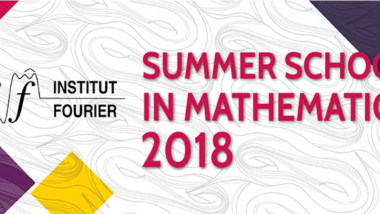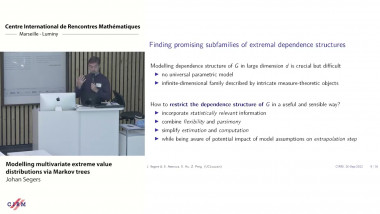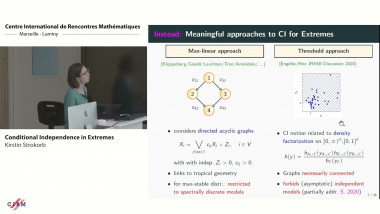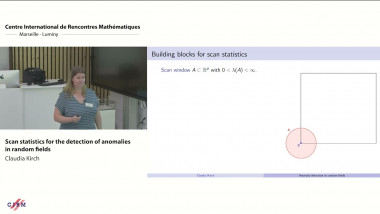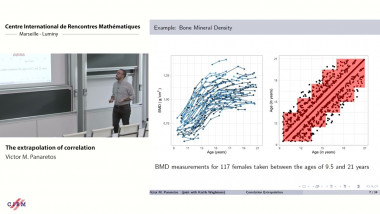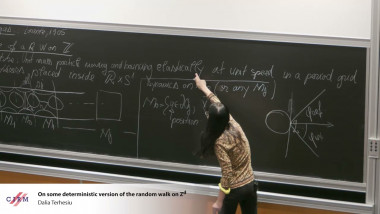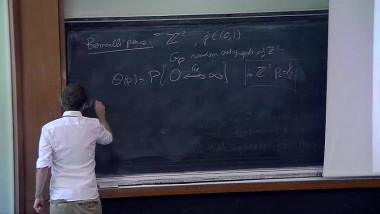Collection Adaptive and High-Dimensional Spatio-Temporal Methods for Forecasting / Méthodes spatio-temporelles adaptatives et en grande dimension pour la prédiction
This conference proposal follows the CIRM conference ”New results on time series and their statistical applications” organized from September 14 to 18, 2020. During the latter, the focus was on time series, typically sequences of random variables, with an interest in problems related to non-stationarity and dependency, extremes, asymptotic behavior of estimators and test statistics. But it appeared to us, also through presentations outside this framework, that it would be extremely fruitful to extend the spectrum of the work presented to sequences of random vectors, as well as sequences of functions or random elements of spaces with certain geometries (typically manifolds such as the one of positive definite matrices). The field of applications of such models is multiple: let us quote for instance sequences of several dependent economic indicators or financial indices, electricity consumption in different countries and different scales, annual climate curves in various regions, trajectories of planes, evolution of the traffic in a road network, etc. The question of forecasting time-dependent mathematical objects is obviously a central issue. The ”classical” approach of mathematical statistics referring to the notion of model, parametric or not, and allowing forecasting from probabilistic type hypotheses can provide a benchmark that may encounter computational troubles to deal with high-dimensional models. However it appears that the recent developments for handling complex data in machine learning can be use to incorporate the contributions of a huge number of covariates (location, week of the day, etc.) and infinite dimensional informations (local expansions, derivatives, eigen space, etc.) in order to improve the forecast. The aim is then to design recursive and/or adaptive algorithms, taking into account or not multiple underlying models and able to handle complex data in an automatic way. We can thus think about predictor’s aggregations, online gradient based algorithms, etc.
Organisateur(s) Bardet, Jean-Marc ; Naveau, Philippe ; Subba Rao, Suhasini ; Veraart, Almut ; von Sachs, Rainer
Date(s) 26/09/2022 - 30/09/2022
URL associée https://conferences.cirm-math.fr/2619.html

